conversation
with you!
You have our ear and we can’t wait to hear about your idea! Share your details here and we will make sure to schedule a coffee date with you soon.
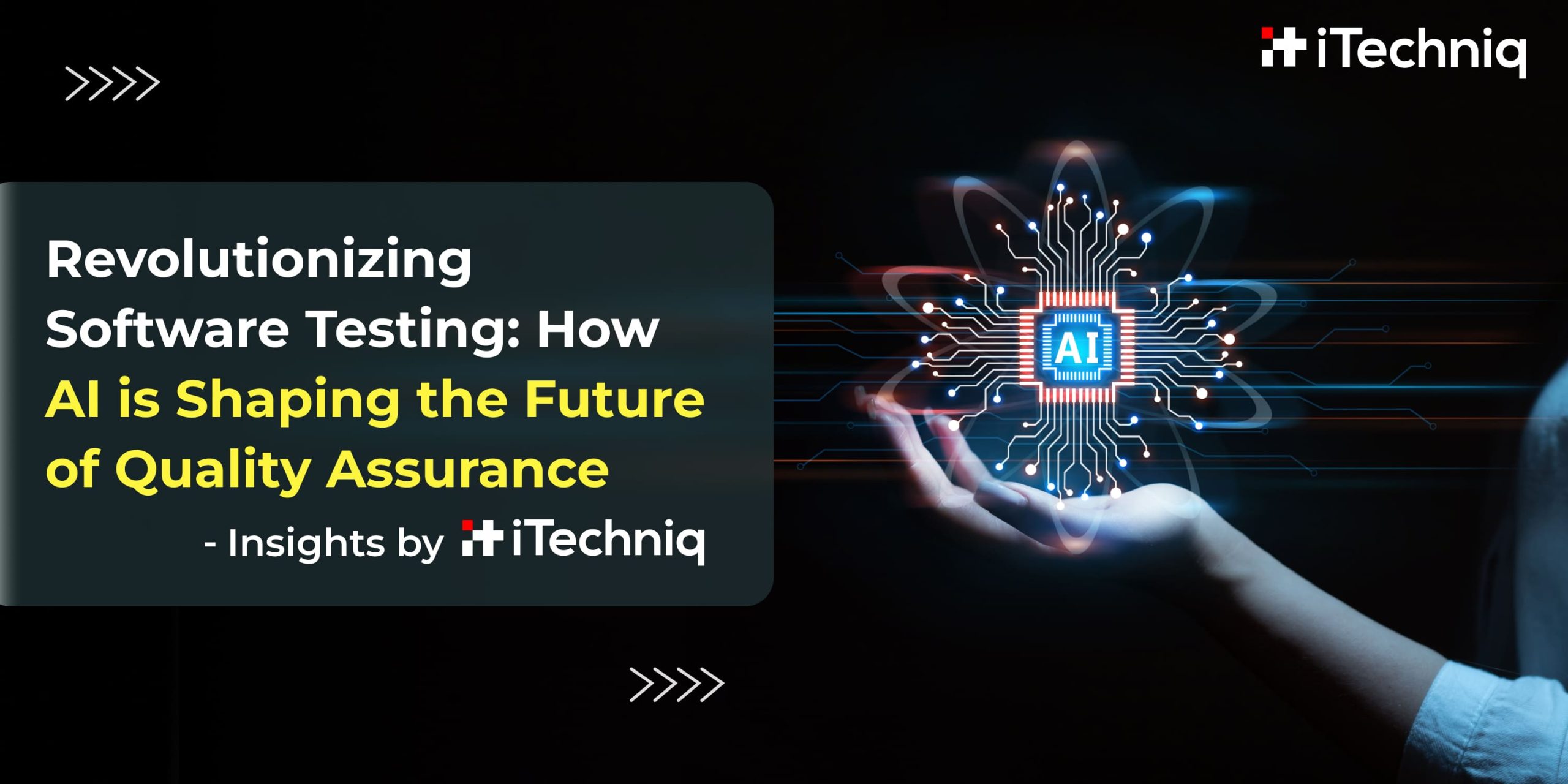
Today, more than ever, there is a great need for quality, error-free software in the fast-paced world of technology. A minor glitch in an app or a platform can easily lose user confidence and even cause a loss in terms of finances. Traditionally, software testing has been done manually by professional people who check each line of code and each user’s interaction very stringently for faults. However, with the new advent of Artificial Intelligence (AI), the new approach to software testing is changing.
With automation, predictive abilities, and the presence of self-learning mechanisms, AI essentially transforms the principles of software testing and QA because it can notice issues faster and more efficiently than a human brain alone. AI is, thus, an imperative tool for UK-based mobile app development companies like iTechniq as the demand for complex apps and systems increases rapidly; hence, ensuring the quality, speed, and accuracy of tests is crucial.
This blog shall explore how AI is changing the software testing landscape, what benefits this might bring, challenges companies are experiencing when embracing AI for testing purposes, and where AI-driven testing of software may be heading. Let’s look into how this innovative technology reshapes the approach towards testing and QA services in UK and other countries.
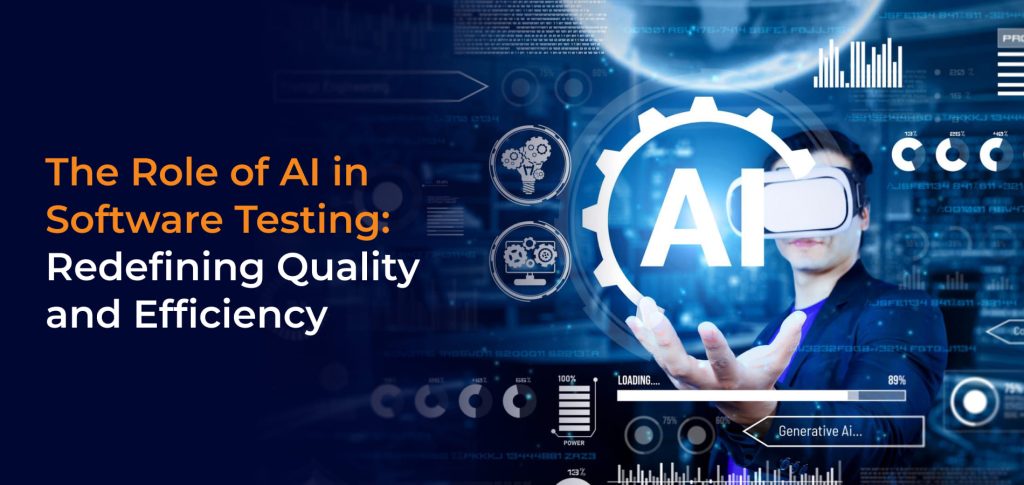
One of the biggest changes that AI has brought to the software testing and QA industry is the integration of AI in software testing and QA services in UK. This is not about automation anymore. In fact, AI can run complex test cases and learn from previous outcomes to optimize future tests. In simple words, AI in software testing works based on the algorithms that improve the accuracy and efficiency of the testing processes.
Being a mobile application development company in the UK, iTechniq has used AI in several ways to improve testing. The main advantage of AI in this regard is that it can handle enormous data and keep improving its processes. In this manner, developers and QA teams ensure that their mobile apps reach the market at the best level.
For instance, AI can perform test case generation and execution. It is traditionally very tedious work that a tester would have to spend his or her time on. Writing and maintaining test scripts involve testers who, at some point in time, have to manually write tests as the software changes and later update the test to match. Testing tools will now be able to give source input in AI to allow the generation of test cases from software requirements and historical test data by saving time and efforts wasted.
For a virtual reality app development company, like iTechniq, AI can create test cases that simulate real-world interactions in a virtual environment, testing every potential user action across multiple platforms simultaneously. This automated testing ensures that the VR app is fully functional and immersive, providing an optimal experience for users.
Another groundbreaking application of AI is predictive testing. AI-based tools use historical data and machine learning algorithms to predict areas of failure in software. Rather than running predefined test scripts based on known issues, AI analyzes patterns and anomalies from previous test runs to predict where problems are most likely to occur.
In the context of an AI app development company in UK, where the software is constantly under evolution, AI tools are very beneficial in predicting problems that may arise ahead when new features are added or code is modified. This testing ahead of time helps ensure bugs are caught well in advance before they reach production.
With CTI, an organization such as iTechniq enjoys continuous integration and testing of mobile applications in development. Here, CI/CD practices involve AI testing tools that continuously test the software after each update or change. That way, there is real-time detection of bugs, so such problems are corrected immediately before they become critical.
On average, AI-powered testing tools can reduce the cost of software testing by up to 50% due to automation and efficiency gains.
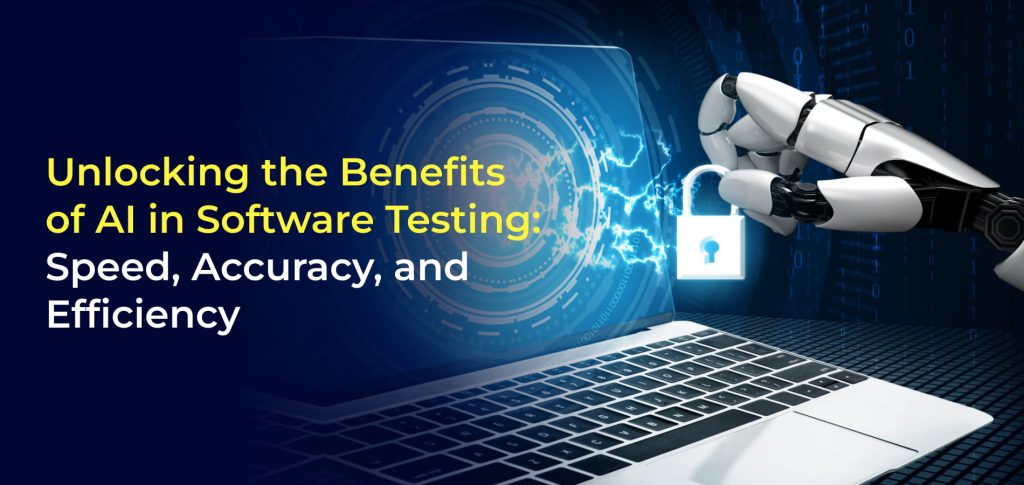
The integration of AI into software testing provides multiple advantages, both for developers and end-users. Let’s explore some of the most significant benefits of AI in software testing and QA.
AI is great at automating repetitive tasks that would take humans a lot of effort. In the case of software testing, AI tools can test much faster than humans do, running thousands of test cases in minutes rather than hours or days. For mobile app development company in UK like iTechniq, the advantage lies in speeding up the testing process and bringing down the overall time-to-market for apps.
As software systems continue to grow more complex, the manual testing approach becomes less and less feasible. AI can cover more test cases at greater speeds and with fewer resources, so it is an invaluable tool in any software development process. Speed and efficiency lead to a much more streamlined development cycle, thus allowing companies to release products much faster and to respond to feedback much more rapidly.
For this reason, in many cases, manual testing can only consider a fraction of potential test scenarios because of time and resource costs. However, AI may exponentially increase test coverage so that every interaction and use case is tested once. AI-driven testing tools can simulate thousands of potential user behaviors running tests on various devices, operating systems, and browsers to ensure the software performs as expected in any environment.
For an AI app development company in UK, full test coverage is crucial because it will prevent many performance issues or even system failure in AI systems when put into other environments; by using AI, we ensure our developed applications are robust and highly reliable.
Even though the initial investment in AI tools is high, the long-term cost savings are substantial. With automated testing, large teams of manual testers can be avoided and labor costs will be reduced. Moreover, the chances of undetected bugs reaching production with AI-driven testing are lower; this can save businesses a lot of money that would otherwise have been spent to fix issues once they are in production and have lost customer confidence.
In a word, for iTechniq as a UK testing and QA services provider, this means the help of AI makes testing easier and less costly operationally, hence passing on savings to our customers. This savings potential is more critical in fields where quality software is the mainstay, like mobile app development.
AI tools can reduce the time spent on bug detection by 70%.
AI is no limitation to one specific area of testing. Instead, it impacts all aspects of software testing, from improving performance and security to functionality throughout the software development lifecycle.
The main goal of functional testing is making sure that the software is behaving in the expected manner, as required by its functional specifications. AI-powered tools are capable of testing the software from a user’s perspective, automatically generating and executing test cases simulating real-life user interactions.
For an Augmented Reality App Development Company in UK like iTechniq, this functionality is very important because it ensures that our AR applications are not only feature-rich but also reliable. AI can validate that all interactive elements in the AR environment, from gesture controls to object recognition, work seamlessly.
It examines how well the software will work if loaded with varying intensities. AI can mimic user traffic, put on stress testing, and analyze real-time bottlenecks in performance. AI tools would be able to process a volume of transactions or interactions to ensure the app is responsive and scalable even when loaded intensively.
For iTechniq, leveraging AI for performance testing in mobile and web applications ensures that they can handle thousands of users simultaneously without compromising on performance. AI tools can identify the weakest points in an app’s infrastructure, providing developers with actionable insights for optimization.
In today’s environment, security comes to the top of mind for most developing software. AI can detect vulnerabilities and security gaps that would not be detected by traditional testing methods. By examining patterns and cross-referencing known vulnerabilities, AI tools predict what threats and breaches might occur, ensuring the software is always secure.
Security is of particular importance for us, being an AI app development company in UK, as we are developing AI-driven applications that deal with sensitive data. AI’s continuous monitoring and assessment of security, even after deployment, ensure that our apps are always secure and updated with the latest defence mechanisms.
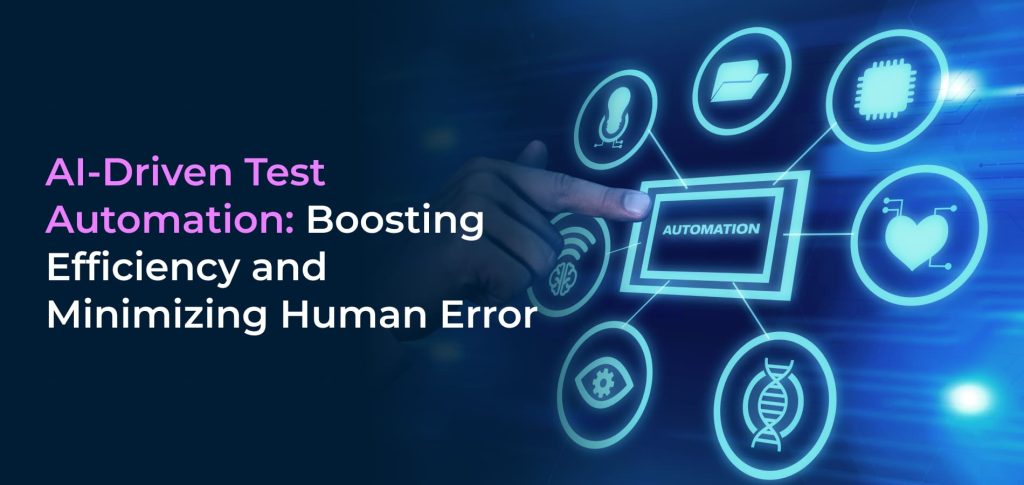
The most significant change AI has brought to software testing is the automation of many aspects of the testing process. Traditionally, manual testers would execute test cases, report bugs, and track issues. However, the manual approach can be time-consuming and prone to human error, often missing complex bugs or making mistakes when running repetitive tests.
With AI-powered testing and QA services, automation has reached new heights. AI algorithms can create, execute, and maintain test scripts without human intervention. It reduces the likelihood of human error and increases the speed and scope of testing. For example, AI tools can run tests on multiple operating systems and environments continuously to ensure that your app functions perfectly regardless of where it’s deployed.
60% of organizations have adopted AI in their testing processes, particularly in automation.
For a mobile application development company in UK like iTechniq, AI-based test automation allows it to scale its testing while keeping the faster release cycles unharmed in terms of quality. AI can even automatically solve minor bugs or provide fixes to commonly occurring issues while recommending fixes through a more intelligent self-correcting system. Autonomy at such a level provides the teams time to focus more on complex issues requiring human judgments and leaves all routine tasks up to the discretion of the AI.
Imagine a mobile application developed for both iOS and Android devices. Traditionally, manual testers would have to test the application on different devices, different versions of iOS and Android, and under different network conditions. With AI-driven test automation, tools can simulate all these scenarios, executing thousands of tests in a fraction of the time it would take a human tester. For a mobile application development company in UK, this will minimize bugs that reach production, and it will give a uniform experience across platforms.
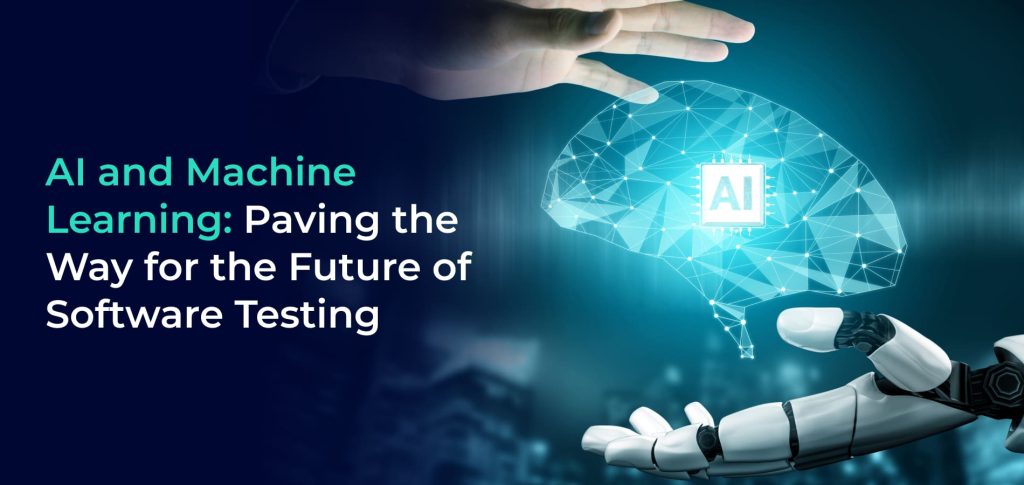
Of course, AI plays a major role, but the integration of Machine Learning opens up new dimensions for software testing. Machine Learning implies that an AI learns over time, enhances its performance based on experience-generating data, and does not have to be programmed explicitly. In the context of software testing, ML can be used for the analysis and adaptation to existing patterns of code behavior, making tests increasingly accurate and reliable.
This capability is transformative for an AI app development company in UK. The ML models can learn from past test results, analyze errors, and continue improving their testing strategy. For instance, ML algorithms can identify the pattern of software failures and generate more focused test scenarios for the future, which may increase the probability of rare bugs that otherwise would have not been discovered.
A good predictive analytics feature of machine learning is essential to test and QA services in UK providers. AI can identify which parts of an application will fail by studying large datasets coming from previous testing cycles. This gives testers a hint on where exactly to focus and saves time from unnecessary tests because they are sure to be placed in areas where failures are more frequent. This, for iTechniq, means that the incorporation of ML into our testing services has helped us provide more accurate and efficient QA solutions to our clients, thereby enhancing our position as a prime AI app development company in UK.
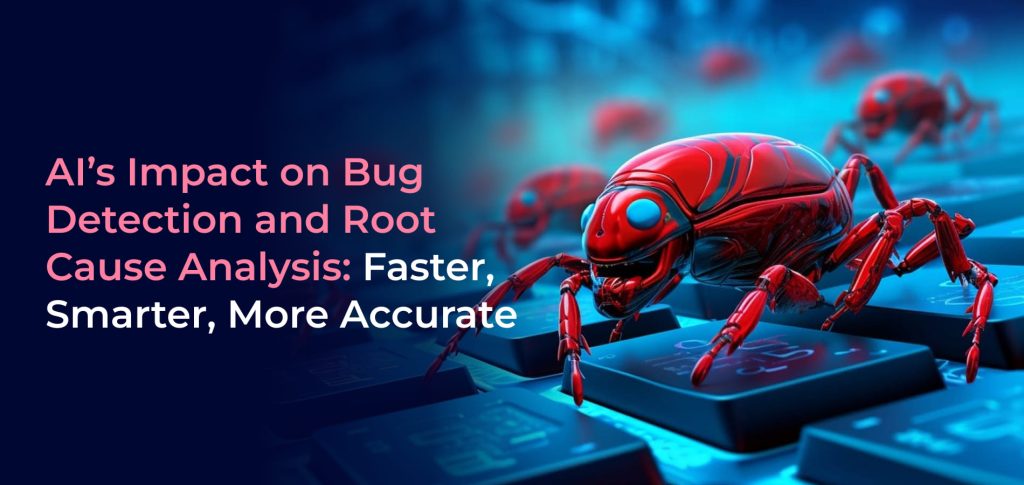
Bug detection has always been one of the core functions of software testing and QA. However, with traditional methods, the process of detecting, identifying, and fixing bugs can take considerable time and effort. AI, with its analytical power, is revolutionizing this aspect of testing by identifying bugs more quickly and accurately than human testers can.
AI tools use algorithms that not only detect bugs but also provide a root cause analysis to identify why the bug occurred and to prevent the bug from happening again. Integrating AI into testing and QA services can reduce businesses’ time and cost associated with bug fixing drastically.
This is the very approach followed by iTechniq. Being one of the top mobile app development companies in UK, we do not focus on bug identification but utilize AI to identify the cause of issues. It enables our developers to get more long-term solutions rather than patch fixes and thus results in an improved overall quality of the app.
One can imagine that if there is a bug due to some logic errors in the app code, AI-based testing tools are capable of automatically tracking this bug and giving hints about which part of the code might be the cause-and-effect situation and even providing possible fixes. This is sort of a process that may eliminate bugs before they make the user experience bitter. This feature is especially helpful for a virtual reality app development company like iTechniq, where bugs may affect the user’s immersive experience in sophisticated environments.
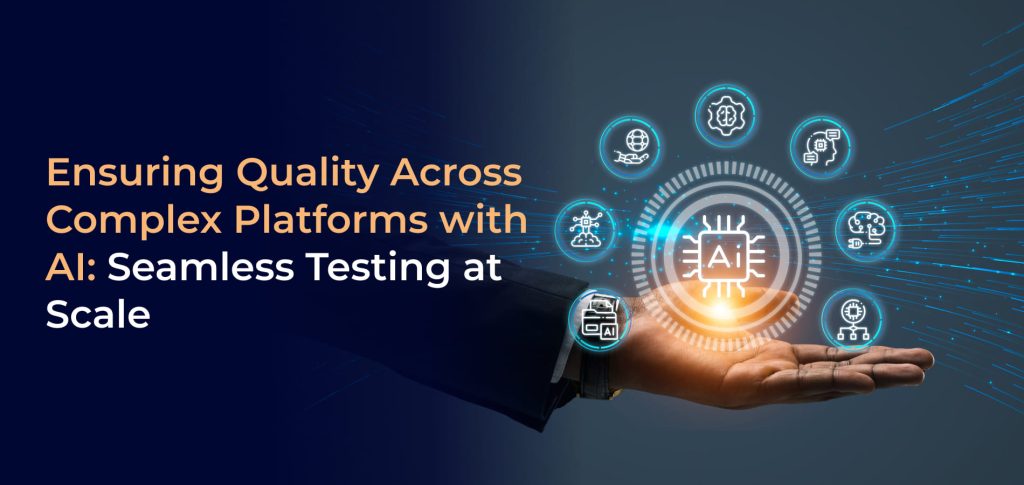
As the digital landscape continues to evolve, software applications are becoming more complex, necessitating testing on multiple platforms, devices, and environments. Consistency in performance, usability, and security across all these platforms is a very challenging task.
AI makes this job much more feasible. With the help of AI-based testing tools, an AI app development company in UK service provider like iTechniq can ensure that an app performs flawlessly on any platform, whether it is a mobile device, a desktop computer, or even a virtual or augmented reality environment. AI testing tools can simulate interactions across various devices and configurations, checking for performance consistency, user experience, and responsiveness.
In the case of Augmented Reality App Development Company in UK and virtual reality app development company, testing becomes challenging across various devices and platforms. But with AI-driven testing, we can simulate real-world user interactions across multiple AR/VR devices to ensure that the app is responsive and immersive on all supported platforms. AI also helps ensure that these complex applications run without performance issues, bugs, or crashes and are seamless for the users.
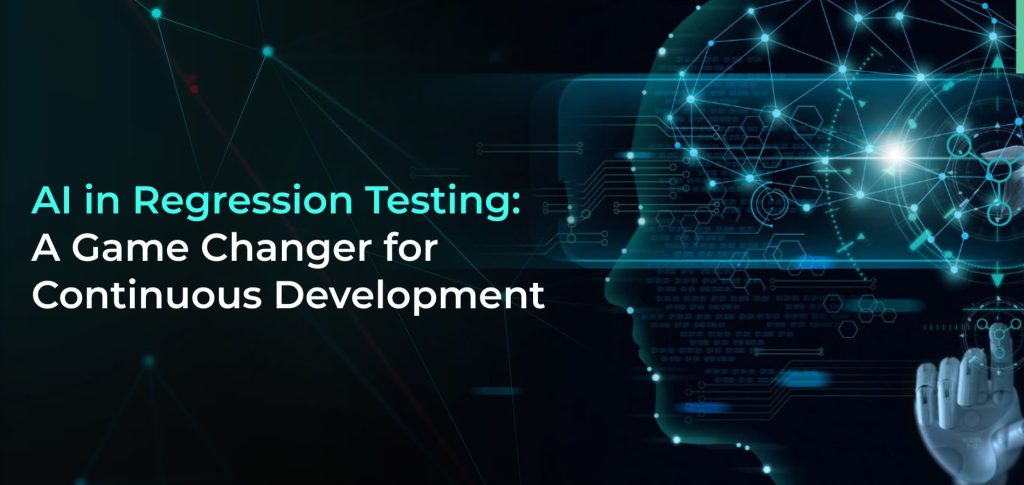
Regression testing is now part of the mainstream process in the modern software development landscape, where CI/CDs are the rule of the day. It will be necessary that while new features and updates come out, those functionalities that existed should not get impacted by new changes in the codebase. Regression testing using older methods is too slow, costly, and even prone to human error.
AI-powered regression testing tools change the game by allowing faster and more efficient testing. These tools can automatically identify which parts of the software need to be tested based on changes made during development, ensuring that only the necessary tests are run, saving both time and resources.
This is critical for an AI app development company in UK. We can continuously deliver updates and new features while maintaining the stability and functionality of the app, ensuring that our clients receive the best possible product without delays.
Even though there are so many benefits to using AI, implementing AI in software testing comes with its challenges. The initial cost of the tools is a big challenge because some of these AI tools are pricey, especially to small companies. Developing AI models also requires massive resources and people to train the AI systems.
Another challenge is continuous training. The AI models learn from historical data, but they should be constantly updated with new information because software evolves with time. If this training is not done continuously, AI testing tools are likely to fail to detect newly emerging bugs or issues.
Further, human oversight must always be there. AI tools may detect potential issues, but it is the human tester who will interpret those results and make the final calls. AI processes data, but it cannot yet replace human judgment with its choice and expertise.
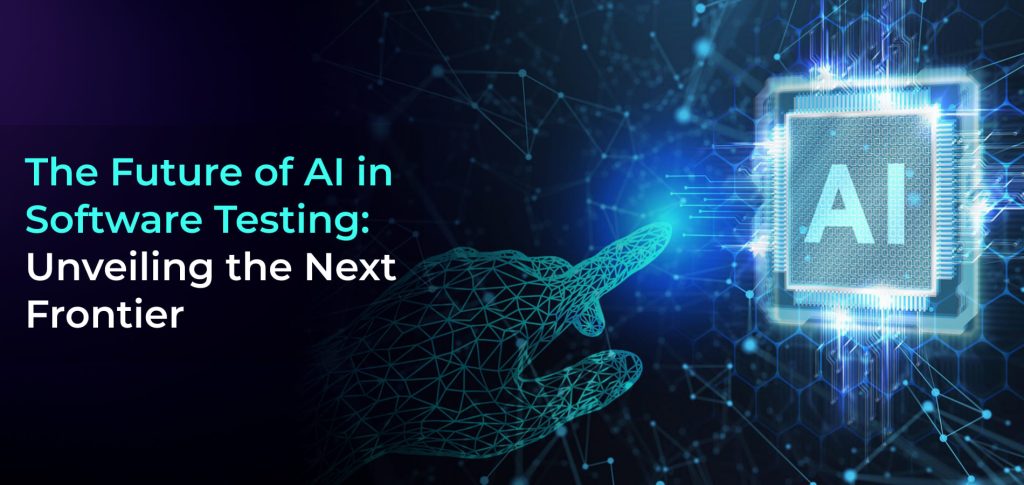
But of course, more is in the future as technology advances. Therefore, AI has to do better with its relation to software testing. The interplay of Machine Learning, Natural Language Processing, and Big Data will make tests even more efficient and accurate as AI evolves with time. There will be sophisticated tools capable of detecting bugs or performance issues well in advance when AI systems start to learn from the vast amount of data.
For the mobile app development company in UK providers such as iTechniq, staying abreast of such AI developments would continue to give us the leading edge in our provision of excellent testing and QA services in UK. Since AI is slowly integrating into software development workflows, the lines of distinction between development and testing would probably blur more and more in creating smoother, faster, and more efficient releases of the software.
In a nutshell, AI has already started to revolutionize the field of software testing. AI enhances accuracy and speed in testing to keep businesses at a pace with the fast-moving market. Whether through automation, bug detection, predictive analytics, or performance testing, the role of AI in software testing and QA services is only bound to grow, providing unparalleled benefits for developers as well as end-users.
For AI app development company in UK providers like iTechniq, AI in software testing is not just a trend; it’s the future. Embracing AI technologies, we will continue to offer cutting-edge testing and QA services in UK, delivering products that are faster, more reliable, and more efficient than ever before.
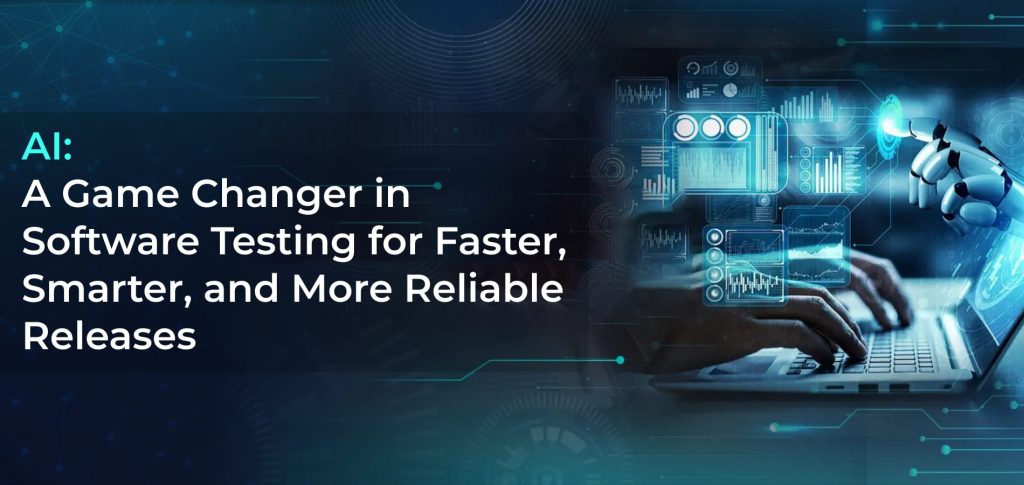
AI is transforming the face of software testing and QA in rapid phases. For an iTechniq-like mobile app development company in UK, this holds enormous scope to increase speed, accuracy, and efficiency for us. Ensuring every aspect of testing from functional to performance to security testing involves AI ensures apps that are delivered by us have a good quality and reliability profile.
The future of software testing is undoubtedly AI-powered, and companies that harness this technology will be at the forefront of innovation. As an AI app development company in UK, we are committed to staying ahead of the curve, integrating cutting-edge AI tools to revolutionize the way we build, test, and deliver applications to our clients.
Through embracing AI, we continue to deliver excellent testing and QA services, creating powerful, user-friendly, and secure applications that meet the growing demands of the digital world.
Take the first step toward smarter, faster, and more efficient testing. Contact us now to explore how AI can redefine your software testing process!